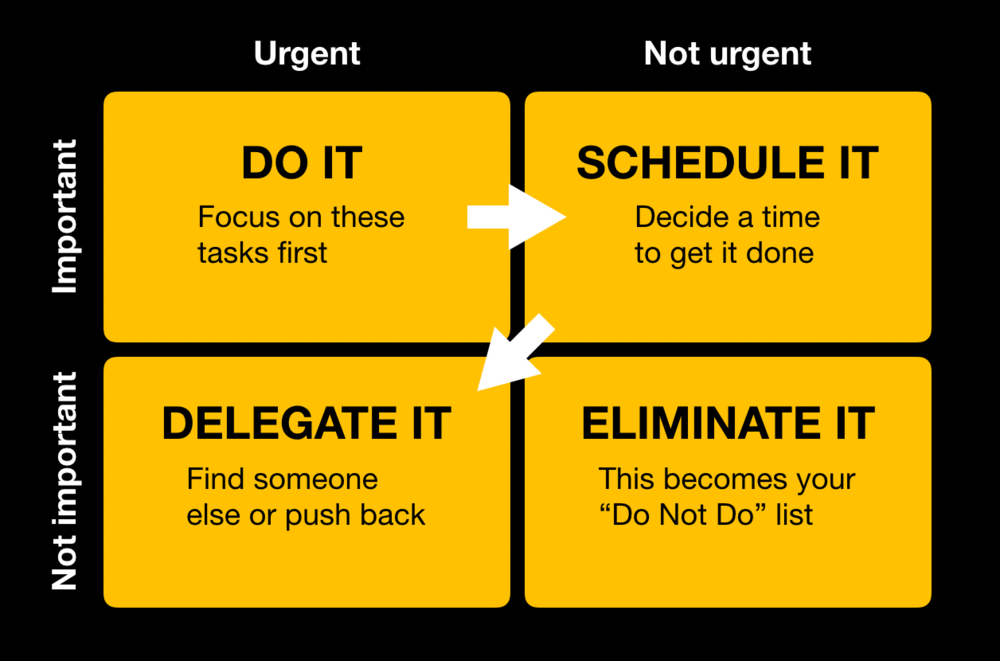What is the difference between Batman and Spiderman? Apart from obviously different dressing styles and the fact that they both end in “man”. Have you ever given it a thought? I have and it has recently dawned on me that Batman is good at team delegating. Sounds funny, but it is true. There is Robin, Alfred Pennyworth to run the errands. Spiderman is mostly on his own. What I am arriving to here is that experienced superheroes delegate. I also believe that being a manager is way closer to being a superhero than you might think.

Contents:
1. What is delegation and when to delegate?
2. So what does delegation mean in business?
3. Delegation tools: How to delegate?
4. Ilya, COO at Synder, about delegation
5. Polly, Head of Customer Support at Synder, about delegation
What is delegation and when to delegate?
So there always comes a moment when one understands that there are too many irons in the fire, the deadlines are chronically missed and burnout is just round the corner. If you don’t realise this is what you are doing, here are 5 signs that you need to delegate stated by Carla Miller, leadership coach:
- “You are struggling to get through your to-do list
- You are lacking time to focus on your priorities
- You are working in a very reactive way and fighting fires
- Your team rarely step out of their routine responsibilities”
If this rings the bell, using delegation techniques is certainly a graceful way out. But when many of us think about it we tend to fall for the good-old catch “if you want something done right, do it yourself”, which only brings us back to the status quo described previously.
So what does delegation mean in business?
Why do we really need effective delegation? Some serious information here first. According to the research by Gallup, delegation in business is key to growth and expansion. In 2014, Gallup studied the entrepreneurial talent profiles of 143 CEOs included on the Inc. 500 list.
What can be taken as a point to consider about delegation is the difference in business performance between Inc. 500 CEOs with high Delegator talent versus those with less of this talent. “Of the 143 Inc. 500 CEOs Gallup surveyed, those with high Delegator talent posted an average three-year growth rate of 1,751% -112 percentage points greater than those CEOs with limited or low Delegator talent. CEOs with high Delegator talent also generated 33% greater revenue in 2013 than those with low or limited levels of the talent: $8 million versus $6 million, respectively.” These factors certainly contributed to the creation of more jobs in a shorter time span (21 jobs in 3 years against 17 jobs per company).
Dr. Scott Williams, professor of management at Wright State University, states that the delegation system does not only lighten your workload, “it can also be a clear sign that you respect your subordinates’ abilities and that you trust their discretion. Employees who feel that they are trusted and respected tend to have a higher level of commitment to their work, their organization, and, especially, their managers,” Dr.Williams concludes.
In other words delegation in business is like killing three birds with one stone. The managers get more time for the necessary things; the workers obtain new skills and higher commitment levels and overall the company benefits by generating more revenue and creating more new jobs. Leadership and delegation are inseparable. That seems persuasive enough to try escaping the previously mentioned I-do-all-by-myself leader’s curse.
Delegation tools: How to delegate?
Effective delegation is a superpower one can learn by following some delegation techniques and using some tools.
Delegation technique #1. Analyze your responsibilities
The easiest way here is to divide your to-do list into “you-alone-can-do-things” and “others-can-do-things”. The more sophisticated method is to use Eisenhower’s matrix and split the responsibilities between the 4 quadrants as in the picture.

Career and business strategist Jenny Blake suggests the following delegation system: we should conduct an audit of our responsibilities using the six T’s to understand which tasks it makes sense to offload.
Tiny: These are small and insignificant tasks that don’t individually take up much of your time, but they tend to add up and steal that precious time of yours. An example might be registration for an event, some spam or booking hotels delegation.
Tedious: Simple but time consuming tasks, sometimes boring. You need to tend to them anyway or rather pass them over to an assistant. Things like updating some presentations or long lists where you have to only change some data can really be handed over.
Time-Consuming: Tasks that should not be done by you alone but your input is valuable. This is a good opportunity to divide those into logical bits and to share between other people — team delegation. Once these smaller tasks are complete you can join the team and finalize the project.
Teachable: Tasks that might initially seem complicated and difficult to delegate, but they can be successfully taught to other people with your oversight and final approval. For example, teaching someone to draft a presentation for a monthly meeting where you can help with some templates, examples and information.
Terrible At: Tasks that make you feel out of your depth. They may kill significantly more time when done by you in comparison to a specialist in the area. Tasks that feel like trying to comment on the recent series craze when you have barely watched the trailer. Have you already watched the Squid Game by the way? That’s the delegation system in practice.
Time Sensitive: Tasks that have the same deadlines and are time sensitive but you can’t grasp them all. Some of those should be delegated so as not to miss the deadline. For example, you have to attend a meeting and make some phone calls at the same time. The latter can be delegated.
Delegation technique #2. Choose the right person
Numerous articles on delegation emphasize the importance of choosing the right person for the task; this is basically one of the pillars of the delegation system. Easier said than done, but there is no other way than identifying the person with the right set of skills and mind on your team. Obviously, you have to consider a lot of points here starting with strengths and expertise ending up with character features needed to perform the task. It might be effective to let your team choose what they are delegated (team delegation). I am going to quote Andrew Carnegie here: “The secret to success lies not in doing your own work, but in recognizing the right person to do it.”
Delegation technique #3. Clarify the expected result
It is important to notice here that as long as it is not you who is doing the job, the way is up to the employee. There should be a certain feeling of freedom and choice when it comes to the process while the result is clearly defined. Stephen M. R. Covey, an American writer, public speaker and the author of the book ‘’The SPEED of Trust’’, argues that the biggest mistake is “delegating specific activities instead of the end result. Another mistake is making your expectations unclear. When people aren’t quite sure what it is they are trying to do, the outcome they are striving for, and how they are going to be accountable for it, they’re not motivated or inspired.”
Delegation technique #4. Give support
Dr. Scott Williams mentions in his work that “proper delegation isn’t anything like abdication — it’s actually hard work. Of course, dumping tasks on your subordinates without a systematic approach to fostering their success and skill development is abdication.”
By “fostering success” here we should understand defining the responsibility and authority of the employee rather than telling how to obtain the result in need. In other words being out of one’s comfort zone with a new task the person should feel that there are some new tools to use. The trick here is that delegation is like walking a thin line between total control and abdication. It is always better to stick to the golden medium.

Delegation technique #5. Review the progress
According to Dr. Scott Williams, “it is wise to plan periodic progress checks on the tasks you have assigned “. So establishing some follow-up or regular meetings to catch up on the process should work just fine. It helps to monitor the process, brings things back on track in time and gives a boost of energy to both sides. Balancing praise and criticism looks like a great way to foster efficiency and productivity.
Hopefully, this theoretical bit wasn’t too boring to read. So let’s have a look at delegation in business practices with the experience of our Synder team.
Ilya, COO at Synder, about delegation
1. What made you delegate? Do you remember the situation?
Every entrepreneur is going through a phase when you have to admit you cannot control every single task to make sure it is realized in the way you designed it. As for me, it was all about facing a question of trust, because sometimes we treat our business as a little baby… and we always think that we know better what’s good for our child, which is wrong in the case of delegation in business, as you cannot be an expert in everything.
However, with effective delegation you can build a team of classy professionals in different fields. It is not a one-man show. The decision to delegate customer support was the right thing to do in my experience. We always try to analyze what is better for our business and sometimes technology comes into play and performs way better when it comes to 24/7 things especially in the sphere of e-commerce. We maintain a good balance in human-software combination and have a rule: what can be repeated should be automated. There is a thing where humans massively surpass machines – imagination. So we do our best to use this super power on a regular basis.
2. What would you never delegate (at work/ at home)?
There are some things that you still have to maintain on your own as you consider them as highly risky or important from a strategic standpoint. Usually it concerns the tasks that are at a risk of failure. There is no problem with delegation in business, which leads to success – it is always motivating for your team mates. The other thing is when you understand that the task is critical, though there is a low chance your team will accomplish it without huge challenges.
As a leader, you have to take this responsibility here, and if you make it spin the right way, you can make sure it is working – go ahead and delegate it! I also have a small amount of tasks like answering users’ emails and comments, running partnership and sales talks that help me to keep in “a good business shape” and in close touch with the team. As for home and family I never delegate sharpening knives and paying utility bills, both important and a bit dangerous.
Polly, Head of Customer Support at Synder, about delegation
1. What made you delegate? Do you remember the situation?
This was a painful experience truth be told. There were loads of tasks and directions to generate ideas for and to control how things are going. I started overworking terribly, like at least 10 hours a day, sometimes 14 hours a day to be able to handle all the scope of tasks. However I started noticing that this is still not enough and that I have become a stopping point for others in the team (they are waiting for a proofread or approval to move on).
Once I noticed that I stopped and asked a question, who is able to do this or that task and what will be the cost of the error? Team delegation. This helped me to delegate a bunch of tasks and release some time for myself and my family.
2. What would you never delegate (at work/ at home)?
I don’t think there is a task you cannot delegate; there are people you cannot rely on. If your team members are responsible, reasonable and have the same understanding of the situation as you do, you can delegate any task. But it is your job to make sure you are surrounded by people you can trust and to make sure you share your vision with them, so you all are on the same page. At home I never delegate washing clothes to anyone except for my washing machine because I like my white T’ to be white, not pink.
Final thoughts
So as we see effective delegation relies heavily on two things: a reasonable person in charge, preferably someone with great foresight and ideally a responsible and creative person to take charge. Here we come to one stumbling block — The Human Factor. This is something that we would all love either to eliminate or at least to minimize. A working solution here would be delegation to technologies and software. It may sound a bit odd at first, but we have in fact been successfully relying on various devices, apps, programs for decades.
We think of “home” and there we go: a washing machine, vacuum cleaner, coffee maker and the list goes on. We hardly forget our in-law’s birthdays because some calendar or a planner app won’t fail us. We think of “work” and one can hardly imagine a modern company without CRM, communication tools, project and task management programs, database software, accounting programs, to name but a few. I won’t even mention office devices that ease a lot of processes now. In the growing world of e-commerce a huge chunk of work is done by software which promotes, compares, helps us choose the things to buy. This sphere is just inseparable from delegation to software.
I’ll repeat the idea that we cannot substitute human creativity with a program or a device just yet, but we can certainly feel secure about many complex and tiring procedures to be done precisely and on time with almost zero human factor at play as there is always a team of trustworthy professionals behind these programs. And what could be more valuable for a successful business than security, trust and reliability? Nothing else comes to my mind. What do you think?

%20(1).png)




